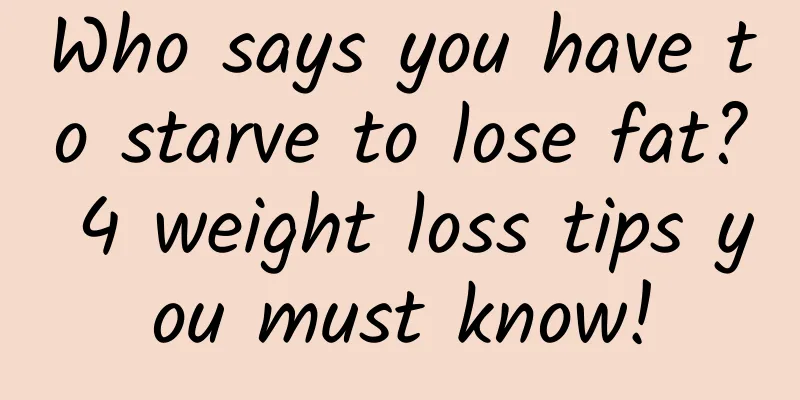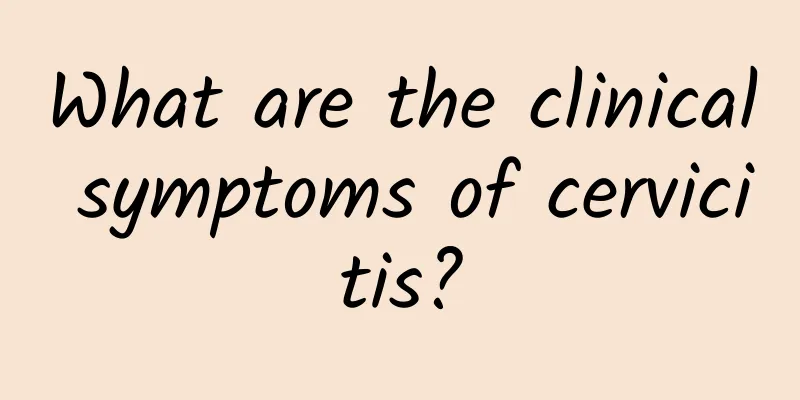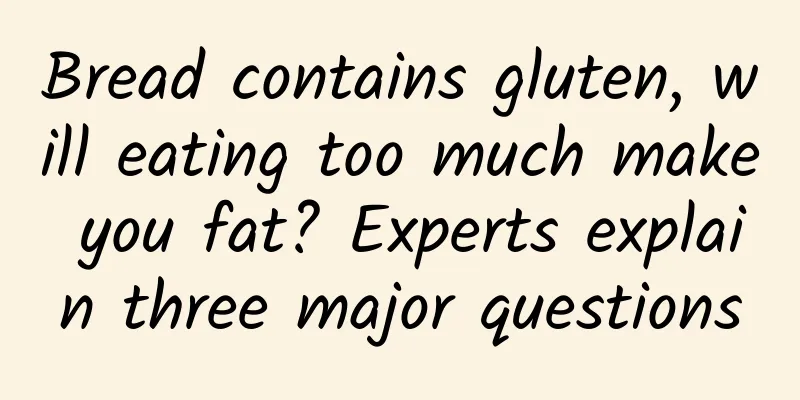Who says you have to starve to lose fat? 4 weight loss tips you must know!

|
A large Harvard study a few years ago showed that some foods can help us prevent excess weight in strange ways, including yogurt and those nasty calorie bombs known as nuts. It sounds contradictory, but the more of these foods you eat, the less weight you gain. How is this possible? How does yogurt exert such magical effects? How can I eat more of a certain food and still protect myself from getting fat? Is this a joke? Since we are already on this topic, let us ask: Do you have to starve yourself if you want to lose weight? Or is there any other smarter way? In The Science of Eating, author Custer examines many questions about overweight and weight loss: What are the elements of a lasting and effective weight loss method? Why do people often fail in weight loss? What is the key to failure? How to avoid weight loss failure? With so many crazy and often completely unproven weight loss tips out there, it can be illuminating to go straight to the original research source to uncover proven ways to shed body fat and keep it off. "Smart weight loss" is the first core of this book. Here are the author's 4 weight loss suggestions: Weight loss advice 1: Low carb is not a "fad diet", but a diet worth trying when you are overweight On average, low-carb diets have proven to be fairly effective. It depends on each person's physical condition, so you have to rely on self-experimentation. Especially if you have insulin resistance (which is often a result of being overweight), you should avoid fast-absorbed carbohydrate bombs like white bread, rice, and potatoes (of course, you should also avoid sugar and fruit juice, but don't give up whole fruit and "slow-absorbed carbs" such as beneficial legumes). Important: A low carb diet is not an Atkins diet! People who want to control their weight are advised to experiment with this diet for at least two to three weeks to see how their body reacts. Weight loss suggestion 2: Take advantage of the protein effect When it comes to satiety, a calorie is not always a calorie. Protein is significantly more filling than fat and carbohydrates. If you want to lose weight, try to include more protein in your diet, such as yogurt, curd (they have a lot of protein), fish and seafood, nuts, seeds, and especially all legumes (many different beans, peas, yacon, lentils). The rule of thumb for eggs in moderation is: one egg a day at most on average. Weight loss tip 3: Eat within a limited time A simple way to stay slim might be to eat within a limited time frame, such as from 8 am to 8 pm (the "80-80 rule"). To some extent this is possible: the shorter the time period, the better the effect. Don't raid the refrigerator at night! Don’t you feel hungry so early in the morning? Great, listen to your body and skip breakfast, which will allow you to extend your night fast a little longer. However, it is better to consume the majority of your calories in the first half of the day (rather than having a big meal in the evening). Although I usually have a big dinner, I don't eat until at least two hours before going to bed, and usually three to four hours before that. A calorie-free glass of water is certainly not a problem. Weight loss tip 4: Use Omega-3 to relieve brain inflammation Being overweight may cause inflammation in the area of the brain that triggers feelings of fullness (the hypothalamus). It’s as if the brain has a “cold” and the hypothalamus cannot “smell” the satiety message from the body. The result is: Yes, we feel hungry precisely because we are overweight. Omega-3 fatty acids can suppress inflammation, so they may also help if you're carrying too much weight. The "brain cold" is relieved, the brain's satiety center responds to satiety messages again, and hunger is reduced. Good sources of omega-3 are walnuts, chia seeds and flaxseed, canola oil, and especially fatty fish. Other options can be used as a secondary choice: Omega-3 capsules (fish oil, krill oil, algae oil). ※Editor: yoyo | Source: Business Weekly Publishing "The Science of Eating - New Life-Saving Nutritional Knowledge to Fight Fat, Disease and Aging" Author/ Bass. Bas Kast | Read the full article on VOGUE.com Research explains: Why does 8 hours of "intermittent fasting" a day really help lose weight? "Sugar" is the only reason for gaining weight! Japanese medical doctors recommend the super effective "5 correct eating methods" and "5 solutions to obesity problems" Lose 6.2 kg on average per month! A famous Japanese weight loss doctor teaches the "Green Tea Coffee Weight Loss Method". You can see the effect even if you eat three meals a day and don't exercise deliberately. For more exciting reports, please visit VOGUE website ※This article is authorized by VOGUE magazine and is prohibited from being reproduced without permission. |
Recommend
Contraindications of physical therapy for chronic pelvic inflammatory disease
When patients with chronic pelvic inflammatory di...
What will happen if you don't treat cervical erosion? Be careful of the four major hazards of not treating cervical erosion in time
In daily life, many women do not know much about ...
Does adenomyosis cause dysmenorrhea?
The occurrence of adenomyosis is very terrible an...
What are the dangers of irregular menstruation?
What are the hazards of irregular menstruation? I...
Is cervical erosion a serious disease? The doctor tells you what cervical erosion is
The cervix is a part of the female reproductive...
What tests are needed for cervicitis
Cervicitis is one of the common gynecological dis...
What are the dangers of multiple uterine fibroids? Will multiple uterine fibroids worsen?
There are many types of uterine fibroids, and mul...
What are the common causes of vulvar leukoplakia in traditional Chinese medicine?
What are the common causes of vulvar leukoplakia ...
How long does it take to get menstruation after abortion
After an abortion, many women are concerned about...
Can’t get rid of lower body fat? Chinese medicine doctor Zhang Wenxin shares 3 secrets to create supermodel legs
Office workers often sit for long periods of time...
Note: Bad living habits can cause irregular menstruation in women
Irregular menstruation is the most common gynecol...
Experts explain what is abortion syndrome
Abortion syndrome is a disease that often occurs ...
Understand the harm of pelvic inflammatory disease to women
Pelvic inflammatory disease is a common gynecolog...
How is pelvic inflammatory disease diagnosed?
I believe everyone is familiar with pelvic inflam...
How much does it cost to treat uterine fibroids? Common symptoms of uterine fibroids
First of all, you should know that there are many...









